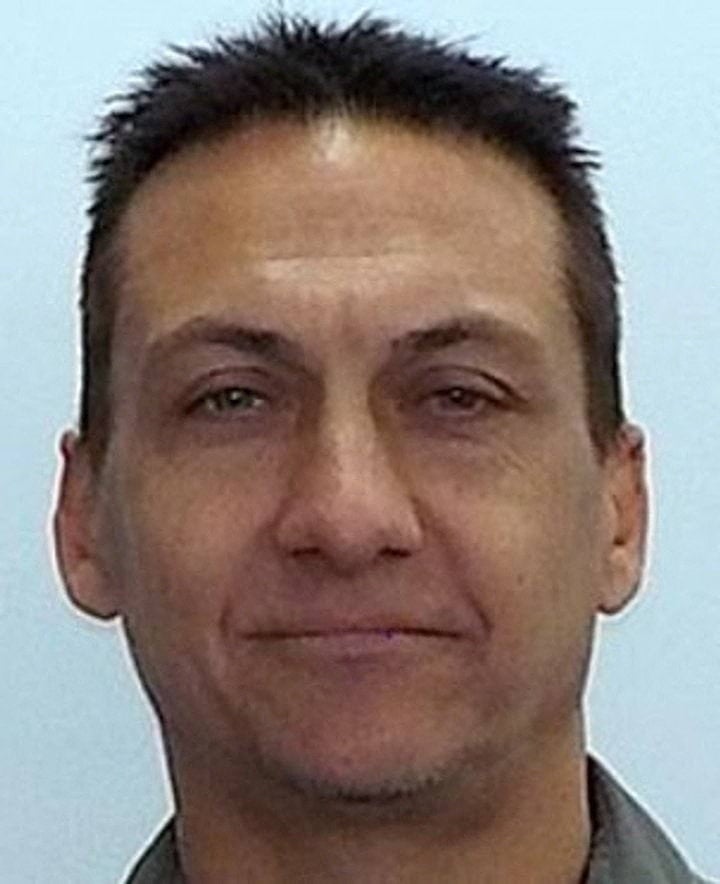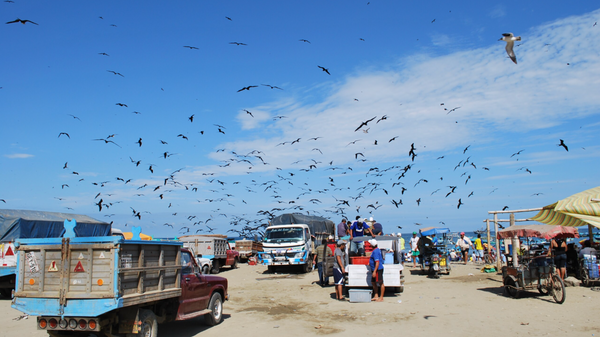Police in Australia are searching for a “very dangerous” man suspected of killing two Victoria police officers and injuring another.
Dezi Freeman, a 56-year-old with a history of offenses, remains at large after the shooting in Porepunkah, a town of just over 1,000 people located 320km northeast of Melbourne.
Police say the suspect describes himself as a “sovereign citizen”, a member of a movement known for promoting conspiracy theories and hostility towards law enforcement.
Mr Freeman reportedly opened fire when 10 armed police officers tried to execute a search warrant at his property in Porepunkah on Tuesday morning.
The shooting killed a 59-year-old detective and a 35-year-old senior constable and wounded another officer.
The police officers "were met by the offender and they were murdered in cold blood," Victoria police chief Mike Bush said.
He added the suspect, who was still armed, fled on foot into surrounding bushland where a sweeping search for him extended through wet and cold conditions into Tuesday night.
Australian prime minister Anthony Albanese said after the shooting that the threat of “sovereign citizens” and extremist ideologies must be taken seriously.
What is the ‘Sovereign Citizen’ movement?
Mr Freeman reportedly espoused “sovereign citizen” beliefs. The sovereign citizen movement consists of individuals who share the belief that the law doesn’t apply to them.
The movement originated in the US and, in recent years, found adherents in Australia and New Zealand. "Sovereign citizens" like Mr Freeman believe that they are separate, or sovereign, from the nations they live in.

Sovereign citizens use fringe legal theories to reject government authority. In the past, some have insisted they could disregard motor vehicle rules because they were "travellers", not "drivers", and have refused to pay taxes.
Mr Freeman has a history of trouble with authorities, calling police "terrorist thugs", according to court documents, and unsuccessfully attempting to arrest a magistrate and police officers while representing himself in a hearing.
In a 2024 case where Mr Freeman tried to challenge a lengthy suspension of his driver’s license, a Victoria Supreme Court judge noted that he had "a history of unpleasant encounters with police officers" whom he referred to in his submissions as "Nazis" and "terrorist thugs”.
While it is not known how many sovereign citizens there are in Australia, researchers believe that their numbers swelled during the Covid pandemic and the anti-vaccine protest in 2022 called the Convoy to Canberra.
Dr Kaz Ross, a researcher into conspiracies and right-wing politics in Australia, told SBS News that Mr Freeman “has been held in high regard by the sovereign citizen movement”.
"To be a citizen means you are part of Australia and the Australian legal system. But they see themselves outside of that, so they see themselves as sovereigns," Dr Ross said, adding that they weren’t completely lawless.
"They believe in the law and they believe in justice,” he explained, “they just think that our current system is wrong.”

Video footage and court records show Mr Freeman campaigned against the Covid lockdowns and attempted to prosecute then Victorian state premier Dan Andrews for treason and fraud in 2021.
The sovereign citizen movement doesn't have a leader or organisation but is a patchwork of individuals and groups. “They've designated sheriffs, they've designated magistrates, they have court hearings," Dr Ross said. "They take it very seriously. They have sheriffs who go around in little sheriff's uniforms. Some have badges on them."
What is the government saying?
Mr Albanese said the government was warned by the Director General of Australian Security Intelligence Organisation about a rise in far-right extremism.
"This is something that has permeated other nations as well. We see it being multiplied in the US. We’ve seen people here, in Canberra as well, put forward those positions, who have demonstrated outside the parliament.” he told the state broadcaster.
“And it is of real concern, and ASIO have warned that this threat is very real, and that we need to be very vigilant about it.”
Andrew Hastie, shadow minister of home affairs, said there had been a breakdown in trust in governments since the Covid pandemic.
"There’s more misinformation and disinformation out there. A lot of people went down the rabbit hole during Covid and they never came back up, and so it is a real risk that some of them are radicalised,” he argued.
"These sovereign citizens, it’s a worrying development…I think law enforcement and intelligence agencies have a lot of work to do in the coming weeks and months.”
Who is Dezi Freeman, suspected gunman on the run in rural Australia after two officers killed?
Victoria premier calls on suspected Porepunkah shooter to surrender as search enters third day
Australia shooting suspect’s family speaks to police as manhunt intensifies
Manhunt for ‘sovereign citizen’ in rural Australia after two police officers shot dead
Who is Dezi Freeman, suspected gunman on the run in rural Australia?
Victoria premier calls on suspected Porepunkah shooter to surrender
Iranian ambassador leaves Australia amid diplomatic rift over antisemitic attacks







